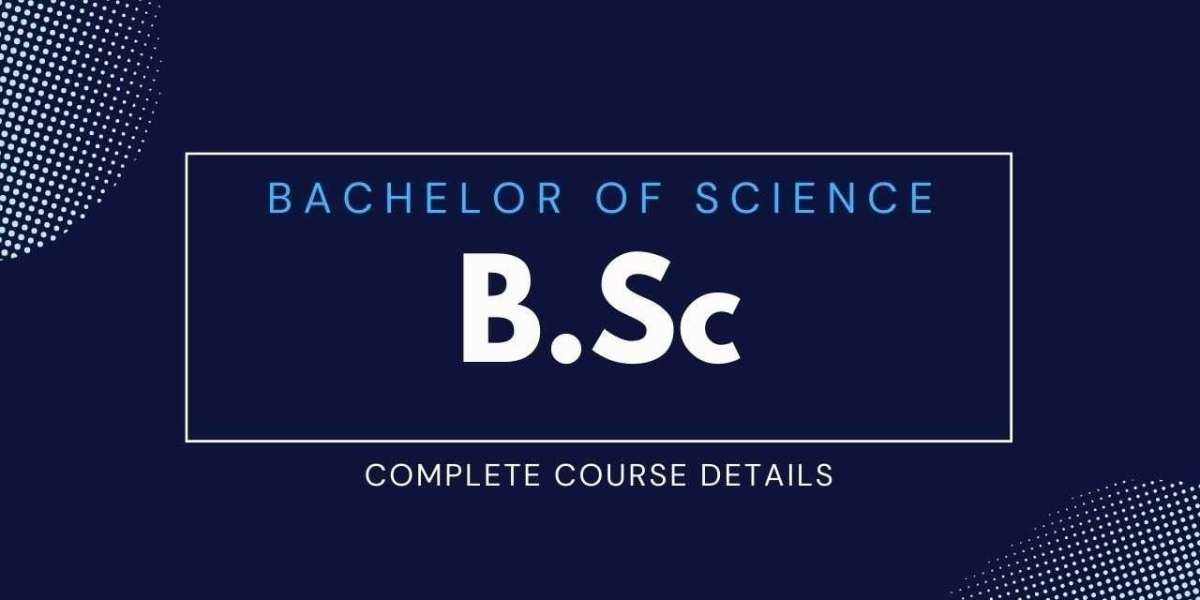In today’s world, choosing the right academic path is crucial for a successful career. For many students interested in pursuing careers in science, technology, engineering, and other fields that require a solid understanding of technical subjects, a Bachelor of Science (BSc) is often the perfect choice. The BSc full form stands for "Bachelor of Science," and it is one of the most versatile and widely recognized undergraduate degrees.
In this article, we will explore everything you need to know about BSc programs, the benefits of choosing a BSc, the various fields you can study, and the career opportunities that lie ahead. If you're a student looking to embark on this educational journey, read on to understand why a BSc might be the ideal degree for you.
What is a BSc Degree?
The BSc full form, Bachelor of Science, is an undergraduate degree offered in various scientific and technical fields. BSc programs typically take three to four years to complete, depending on the country and university. It is designed to give students a comprehensive understanding of specific scientific disciplines, such as Physics, Chemistry, Biology, Computer Science, Mathematics, and more.
The BSc degree is recognized worldwide, and it plays a crucial role in preparing students for a wide range of career opportunities, whether they choose to enter the workforce immediately or pursue higher education. While the course content is heavily focused on theory and practical learning, it also emphasizes critical thinking, problem-solving, and research skills.
Different Types of BSc Programs
One of the appealing aspects of the BSc is the broad range of programs available. Students can choose from a wide variety of fields based on their interests and career goals. Here are some of the most popular BSc programs:
BSc in Biology: This program focuses on the study of living organisms, including plants, animals, and microorganisms. Graduates can work in healthcare, research, or environmental conservation.
BSc in Chemistry: A BSc in Chemistry provides an in-depth understanding of chemical reactions, properties, and processes. Graduates can pursue careers in the pharmaceutical industry, environmental science, or chemical engineering.
BSc in Physics: This program covers the principles of matter, energy, and the fundamental forces of nature. Graduates can work in research, engineering, or education.
BSc in Computer Science: With the growing demand for technology professionals, a BSc in Computer Science is a great option for students interested in software development, artificial intelligence, and cybersecurity.
BSc in Mathematics: A BSc in Mathematics helps students develop a deep understanding of numbers, structures, and patterns. Career opportunities include data analysis, teaching, and actuarial work.
BSc in Environmental Science: This program focuses on the study of environmental issues and how to address them. Graduates can work in environmental consulting, government agencies, or conservation organizations.
BSc in Psychology: If you're interested in human behavior and mental processes, a BSc in Psychology could lead to careers in counseling, therapy, research, or human resources.
BSc in Geology: This program involves the study of the Earth's structure, history, and processes. Graduates can work in environmental consulting, natural resource exploration, or even in disaster management.
These are just a few examples, and students can also pursue specialized BSc degrees in fields like Nutrition, Agriculture, Forensic Science, Biotechnology, and more.
Why Choose a BSc Degree?
Pursuing a BSc degree can be a transformative decision for many students. Here are some reasons why a BSc might be the right choice for you:
Strong Academic Foundation: One of the primary benefits of a BSc program is the strong academic foundation it provides. The program offers a thorough understanding of scientific concepts, theories, and methods that can be applied in real-world scenarios. It prepares students for both the job market and advanced studies in their chosen field.
Practical Experience: Unlike many other programs, BSc degrees often involve a significant amount of hands-on learning. Students have the opportunity to conduct experiments, participate in lab work, and engage in practical research projects. This practical experience is crucial for students who want to excel in their future careers.
Career Opportunities: A BSc opens doors to a wide range of career opportunities. Whether you want to work in healthcare, research, technology, or education, a BSc can serve as the stepping stone to your desired profession. The versatility of a BSc degree allows students to enter various industries.
Preparation for Higher Studies: A BSc degree is often the first step for students who want to pursue advanced degrees such as a Master’s (MSc) or PhD. For example, if you pursue a BSc in Biology, you may choose to specialize in a particular area, such as genetics or microbiology, by continuing your studies at the postgraduate level.
Developing Critical Thinking and Problem-Solving Skills: A BSc program is designed to develop your analytical skills and teach you how to think critically. Whether you are solving complex mathematical equations or analyzing scientific data, you will constantly be challenged to use your problem-solving abilities. These skills are highly valued by employers and will serve you well in any career.
Skills Acquired in a BSc Program
While pursuing a BSc degree, students acquire a wide range of skills that prepare them for future challenges. Here are some key skills developed during a BSc program:
Research Skills: Students learn how to conduct scientific research, gather data, analyze results, and present their findings. These research skills are essential for students pursuing careers in science and technology.
Communication Skills: Writing research papers, presenting findings, and participating in discussions are an integral part of a BSc program. As a result, students develop strong written and verbal communication skills.
Technical Skills: Depending on the chosen field, students gain technical expertise, whether it's working with laboratory equipment, learning programming languages, or understanding complex mathematical models.
Teamwork: Many BSc programs involve group projects or collaborative research. Students learn how to work as part of a team, which is crucial in most professional settings.
Time Management: The rigorous coursework and deadlines in a BSc program help students develop effective time management skills. These skills are crucial in the workplace, where deadlines and project timelines must be adhered to.
Career Opportunities After a BSc
A BSc degree opens up a wide range of career opportunities across various sectors. Some of the potential career paths include:
Healthcare: Graduates with a BSc in Biology, Biochemistry, or Pharmacology can work in hospitals, laboratories, or the pharmaceutical industry.
Technology and IT: A BSc in Computer Science or Information Technology prepares graduates for roles in software development, cybersecurity, and data science.
Research and Development: Students who have a BSc in Physics, Chemistry, or any other science-related field can work in research labs, universities, or corporate RD departments.
Environmental Conservation: Graduates with a BSc in Environmental Science can work with government agencies, NGOs, and private firms focusing on sustainability and conservation efforts.
Education: Many BSc graduates choose to become teachers or lecturers in schools, colleges, and universities.
Engineering: A BSc in fields such as Physics, Mathematics, or Computer Science can lead to engineering roles, such as software engineering or civil engineering.
Challenges of Pursuing a BSc
While a BSc degree offers numerous benefits, it’s important to be aware of the challenges involved in pursuing this academic path. Some of the challenges include:
Intensive Coursework: A BSc program involves a lot of hard work, with a heavy focus on theory, experiments, and assignments. The academic pressure can be challenging for some students.
Specialization Requirements: Some students may find it difficult to decide on a specialization. However, the flexibility of many BSc programs allows students to explore different subjects in the first year before choosing a specific focus.
Workload: The workload for a BSc degree can be overwhelming at times, especially when students have to balance practical lab work with academic studies.
Despite these challenges, the rewards of earning a BSc degree far outweigh the difficulties. The knowledge, skills, and experience gained will serve students well in their careers and academic pursuits.
Conclusion
A BSc degree offers a robust foundation in scientific knowledge, technical skills, and research abilities. Whether you're interested in healthcare, technology, research, or education, the versatility of a BSc allows you to explore numerous career opportunities. With a BSc, you will be well-prepared for both the job market and advanced academic study, and you will have the opportunity to make a significant impact in your chosen field.
FAQs
What is the BSc full form?
- The BSc full form is Bachelor of Science.
How long does it take to complete a BSc program?
- A BSc program typically takes 3 to 4 years to complete, depending on the university and country.
What are the career opportunities after completing a BSc degree?
- Graduates with a BSc degree can pursue careers in healthcare, research, technology, education, environmental conservation, and more.
Can I pursue higher studies after completing a BSc?
- Yes, many students continue their studies by pursuing a Master’s degree (MSc), or even a PhD, after completing their BSc.
Is a BSc degree recognized worldwide?
- Yes, the BSc degree is recognized globally, making it easier for graduates to find job opportunities or continue their education in other countries.












